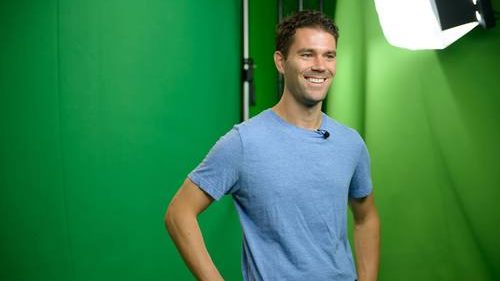Never one to chase shiny objects, Joe Fairless learned how to to stay focused on his goal of investing in real estate—
Without breaking the bank.
Joe graduated in 2005 from Texas Tech University with a major in advertising. Shortly after graduating he started at Madison Avenue in New York at an advertising agency.
Through his hard work, he climbed the corporate ladder relatively quickly. He saved money along the way because he kept his living expenses fixed and relatively low. This was to serve his long-term goal: to invest in the real estate market.
Avoid Conforming With The Crowd By Knowing What Truly Matters
Joe spent years living in an apartment in New York, always sharing it with a roommate to keep his costs low. Even as his pay went up through promotions, he kept his lifestyle relatively frugal.
Joe saw lots of people who seemed like they were treading water, even as their pay increased. They would move into slightly bigger apartments every now and then, or enjoy some luxuries, but they didn’t transform their lives significantly.
Joe avoided this by chasing a goal that truly mattered to him. He highlights how important it is to identify early in one’s life what we want for ourselves and for our loved ones. If you don’t, you get caught up in what other people want and just naturally gravitate towards whatever they are doing, instead of charting your own path.
Beginning His Journey
Joe wanted a house with a nice yard, which would have been prohibitively expensive in New York. In 2009 he bought his first house in Dallas, Texas, then bought three more soon after that.
While he was investing, he began to lose interest in his advertising job. So he began to pursue multi-family property investing more seriously.
Joe’s 3 Steps To Success
After eight years in the field, Joe now controls over $250 million in assets.
How did he get there? Joe followed three steps that worked for him:
--> First, you need to educate yourself on what it takes in order to achieve a high level of success within your chosen industry. You can do this by looking to role models and reading books written by successful people.
--> Second, you need to evaluate your own skill set critically, comparing it to what you’ve discovered is necessary for success.
--> Finally, you find other people with complementary skills and a similar value set and bring them aboard as partners, vendors, or operators.
How The Process Worked For Joe
When Joe did his first real estate deal, he did all the work himself. He identified the deal, negotiated it, and brought the necessary equity through from investors.
From this deal, he realized that there were—in the field of real estate—lots of things he’s only average at, some things he's terrible at (like negotiating), and some things he’s really good at.
So he looked at the highest performers in his industry and compared them with himself, and found a business partner with a complementary skill set. He partnered up with Frank Roessler for his next deal.
Frank’s institutional knowledge worked great with Joe’s skills. Frank focuses on underwriting, debt financing and the asset management, while Joe’s primary focus is on money flow as well as investor relations. Both of them source potential real estate deals.
They would soon form Ashcroft Capital, which is now a multifamily investment firm with national coverage.
When you work with a partner, you need to ensure there’s an alignment of interest and values with that person and that you enjoy spending time with them. Otherwise the relationship will suffer.
Surrounding Yourself With Market Leaders While Also Building Deal Flow
Joe continues to build up his expertise by keeping in contact with leaders in the industry. He’s found many of them through his interview-focused podcast, Best Real Estate Investing Advice Ever, which releases new episodes every day of the year.
The podcast also serves as fantastic passive marketing. Having a podcast where you interview thought leaders in a space you want to work in really builds up your credibility in that field. You get to leverage their experience while also raising your reputation—and building a network—via association.
WANT MORE SUCCESS STORIES? EXPLORE THESE ON CAPITALISM.COM:
• How Facing a Health Scare Helped This Entrepreneur Dad Reset His Priorities
• The #1 Lesson Jerry Seinfeld Learned That Led to His $860 Million Net Worth
• How This Real Estate Mogul Built a $10 Million Business After Losing Everything








